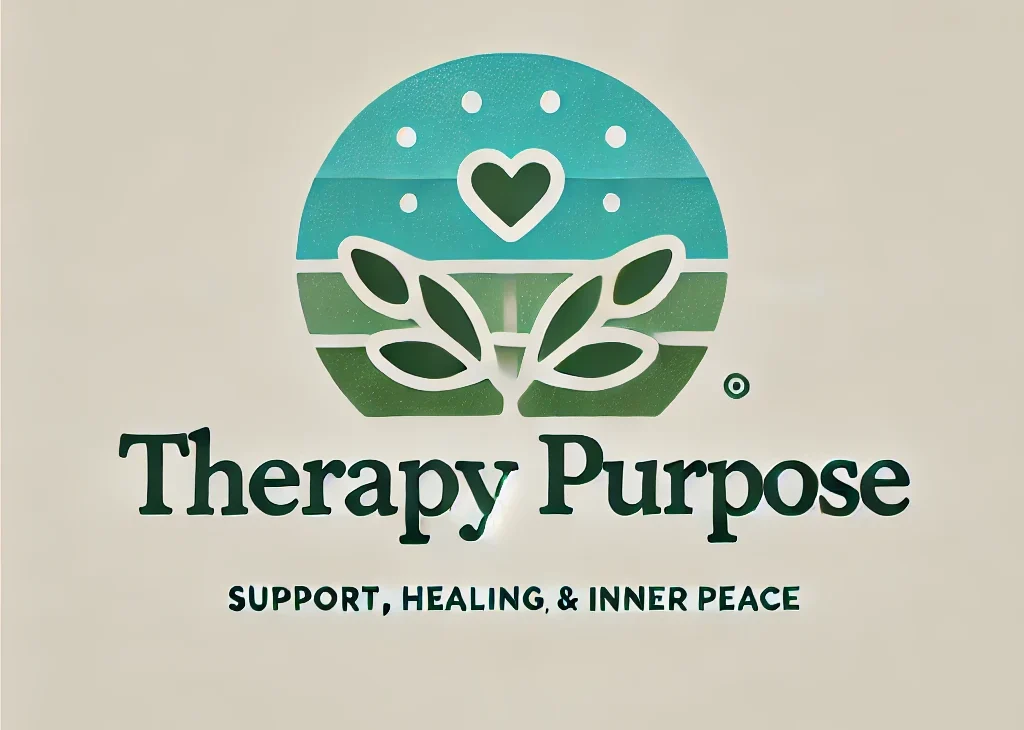If you’re searching for relief from muscle pain and tension, you might have come across the term "Myofascial Therapy Near Me." This therapeutic approach targets the fascia, the connective tissue surrounding muscles, to alleviate discomfort and improve mobility. With numerous benefits, including enhanced circulation and reduced pain, myofascial therapy offers effective treatment options for various conditions. By understanding how this therapy works, what to expect in a session, and how to find a qualified therapist, you can take the first step towards achieving lasting muscle relief.
Understanding Myofascial Therapy
Myofascial therapy focuses on relieving pain and restoring movement by targeting the fascia, a connective tissue that surrounds muscles. This therapy addresses pain caused by myofascial trigger points—tight knots in muscles that can cause discomfort and restrict motion.
Key features of Myofascial Therapy include:
- Manual techniques: Practitioners use their hands to apply gentle pressure and stretching, enhancing blood flow and reducing tightness.
- Holistic approach: It considers the interconnection between muscles and the fascia, promoting overall body wellness.
- Individualized treatment: Therapists create personalized plans tailored to each patient’s needs.
When searching for Myofascial Therapy Near Me, you may come across two primary approaches:
| Approach | Description |
|---|---|
| Direct Method | Applies pressure on specific trigger points. |
| Indirect Method | Uses a gentle stretching technique, promoting relaxation. |
Understanding these approaches can help you make an informed choice on your journey toward muscle relief by finding effective Myofascial Therapy Near Me.
Benefits of Myofascial Therapy
Myofascial therapy offers numerous advantages for those seeking relief from muscular pain and tension. Here are the key benefits to consider:
Pain Relief: Many individuals report significant pain reduction after sessions. This therapy focuses on releasing tight fascia, which alleviates pressure on delicate nerve endings.
Improved Flexibility: By increasing the elasticity of the fascia, patients experience enhanced range of motion, making daily activities easier.
Posture Correction: Myofascial therapy encourages proper alignment, reducing the risk of developing chronic pain due to poor posture.
Stress Reduction: The relaxing nature of this therapy calms the nervous system, promoting overall well-being and mental clarity.
Faster Recovery: Athletes particularly benefit as it enhances recovery time from injuries by improving circulation and healing.
Exploring options for "Myofascial Therapy Near Me" can connect you to skilled professionals who can tailor treatments to your unique needs, ensuring maximum benefits tailored specifically for you.
How Myofascial Therapy Works
Myofascial therapy operates by releasing tension in the connective tissue known as fascia, which surrounds muscles and organs. This therapy employs specific techniques that target restrictions in the fascia. Here’s how it unfolds:
- Assessment: A qualified therapist begins with an evaluation of your posture and movement patterns to identify areas of tightness and pain.
- Manual Techniques: The therapist uses their hands to apply gentle, sustained pressure on restricted fascia, helping to restore normal movement and alleviate pain.
- Stretching: Incorporating stretches during sessions enhances muscle flexibility and promotes blood flow.
Key Mechanisms of Action
| Mechanism | Description |
|---|---|
| Release Tension | Reduces tightness and pain in affected areas. |
| Improve Blood Flow | Enhances circulation, promoting healing in muscles. |
| Restore Mobility | Increases flexibility and range of motion. |
Patients often find relief from chronic pain, increased movement, and improved overall well-being through these effective techniques. If you’re searching for "Myofascial Therapy Near Me," consider how these methods can work for you.
Common Conditions Treated by Myofascial Therapy
Myofascial therapy effectively addresses a variety of musculoskeletal issues, offering relief from pain and discomfort. Here are some common conditions treated by this holistic approach:
- Chronic Pain: This includes fibromyalgia, arthritis, and myofascial pain syndrome, where persistent pain affects daily life.
- Headaches: Tension-type and migraine headaches often stem from myofascial trigger points; treatment can alleviate these symptoms.
- Sports Injuries: Strains and sprains benefit from myofascial therapy, accelerating recovery and improving performance.
- Post-Surgery Rehabilitation: It assists in restoring mobility and reducing scar tissue, enhancing the recovery process.
- TMJ Disorders: Jaw pain and dysfunction can be treated effectively, providing significant relief.
If you’re searching for "Myofascial Therapy Near Me," consider these conditions to determine if this therapy might be beneficial for you. Many practitioners specialize in treating these issues, often providing customized treatment plans tailored to individual needs.
What to Expect During a Myofascial Therapy Session
When you book a session for Myofascial Therapy Near Me, it’s essential to understand what the experience typically entails. Here’s a breakdown of what you can expect:
Initial Assessment: Your therapist will conduct a thorough assessment. This may include a discussion of your medical history and specific pain areas.
Treatment Plan: Based on your assessment, the therapist will create a personalized treatment plan. This plan may focus on areas of tightness or pain.
Manual Techniques: Expect to receive hands-on techniques that target the fascia—the connective tissue surrounding your muscles. The therapist may use sustained pressure, stretching, or movement.
Relaxation and Comfort: A comfortable environment is crucial. You’ll be encouraged to communicate regarding your comfort level throughout the session.
Post-Treatment Guidance: After the session, your therapist may provide at-home exercises or stretches to enhance the benefits of myofascial therapy.
Overall, experiencing myofascial therapy can be a transformative process that not only alleviates pain but also promotes relaxation and wellness.
Finding a Qualified Myofascial Therapist
Searching for Myofascial Therapy Near Me can feel overwhelming, but finding a qualified therapist is crucial for obtaining effective treatment. Here are some steps to simplify your search:
Research Credentials
Ensure the therapist is licensed and has specialized training in myofascial therapy. Look for certifications from recognized organizations.Read Reviews and Testimonials
Positive feedback from previous clients can indicate a therapist’s expertise. Platforms like Google, Yelp, and social media can provide insights into their handling of clients.Ask About Techniques Used
Therapists may employ various techniques; inquire about their approach to understand if it aligns with your needs.Schedule a Consultation
A preliminary meeting can help assess compatibility. Discuss your specific conditions and gauge their understanding.Verify Insurance Compatibility
Confirm whether the therapy sessions are covered by your insurance plan to avoid unexpected costs.
By following these steps, you can confidently find a qualified therapist for Myofascial Therapy Near Me, ensuring a tailored treatment plan that addresses your specific concerns.
Myofascial Therapy Techniques and Approaches
When searching for Myofascial Therapy Near Me, it’s essential to understand the various techniques and approaches therapists might use. Each technique aims to target muscle tightness and promote relaxation. Here are some common methods:
Myofascial Release: A hands-on technique that applies gentle sustained pressure to fascial restrictions. This method helps release tension and restore movement.
Trigger Point Therapy: Focuses on specific tight areas within muscles, known as trigger points. Applying pressure to these points can alleviate pain elsewhere in the body.
Cupping: Involves using suction cups on the skin, helping to increase blood flow and reduce muscle tension.
Stretching Techniques: These include both active and passive stretching to improve flexibility and relieve tension in the fascia.
Active Release Technique (ART): A specialized hands-on approach that involves moving the body while the therapist applies pressure to the affected muscle.
Each of these techniques offers unique benefits tailored to individual needs. To find the right Myofascial Therapy Near Me, consider your specific condition and discuss these techniques with your therapist to determine which approach suits you best.
Home Exercises to Complement Myofascial Therapy
Incorporating home exercises can significantly enhance the benefits of myofascial therapy. These exercises not only promote flexibility but also reinforce the improvements gained during therapy sessions. Here are some effective exercises to consider:
- Foam Rolling: Use a foam roller on major muscle groups to relieve tightness. Focus on areas such as the back, thighs, and calves.
- Stretching: Perform gentle stretches for 10-15 minutes daily. This can include neck stretches, shoulder rolls, and hip flexor stretches.
- Strengthening: Engage in low-impact strength training to support overall muscle health. Bodyweight exercises, such as lunges and squats, are excellent choices.
- Breathing Exercises: Practice deep breathing techniques to reduce stress and tension, enhancing blood flow to muscles.
By regularly integrating these activities into your routine, you’ll maximize the effectiveness of Myofascial Therapy Near Me. Remember to consult with your therapist for personalized recommendations and modifications to ensure safe practice at home.
Potential Risks and Considerations
While myofascial therapy offers numerous benefits for muscle relief, it’s essential to consider potential risks and precautions before scheduling a session with a "Myofascial Therapy Near Me" professional. Here are some important points to keep in mind:
Mild Discomfort: Some individuals may experience soreness after treatment. This sensation typically subsides within a few days.
Existing Health Conditions: Those with conditions such as osteoporosis or severe vascular issues should consult their healthcare provider before undergoing therapy.
Pregnancy: Pregnant individuals should obtain approval from their doctor, as certain techniques may not be suitable.
Allergy Precautions: Inform your therapist about any allergies to oils or lotions used during the session.
Proper Technique: Ensure the therapist is qualified and experienced, as improper application may exacerbate conditions rather than alleviate them.
In summary, while looking for "Myofascial Therapy Near Me," factor in these considerations to ensure a safe and effective experience. Always prioritize communication with your therapist for optimal results.
Patient Testimonials and Success Stories
Hearing from those who have experienced Myofascial Therapy Near Me can provide valuable insight into its effectiveness. Here are some encouraging testimonials from satisfied clients:
Linda, 34: "After months of chronic shoulder pain, I discovered myofascial therapy. My therapist worked magic on my tight muscles and I felt relief after just one session!"
James, 45: "I dealt with lower back pain for years. Finding Myofascial Therapy Near Me was a game changer. The treatments not only eased my pain but improved my mobility significantly."
Sarah, 28: "As a dancer, muscle tension was part of my life. I started regular sessions and noticed drastic improvements in my flexibility and performance!"
Success Rates
To give you a clearer idea, here’s a simple comparison of reported outcomes:
| Condition | Improvement Rate (%) |
|---|---|
| Chronic Pain | 85% |
| Sports Injuries | 75% |
| Post-Surgery Rehabilitation | 70% |
These testimonials and statistics highlight the positive impact of myofascial therapy. If you’re searching for Myofascial Therapy Near Me, consider reaching out to these success stories for inspiration!


